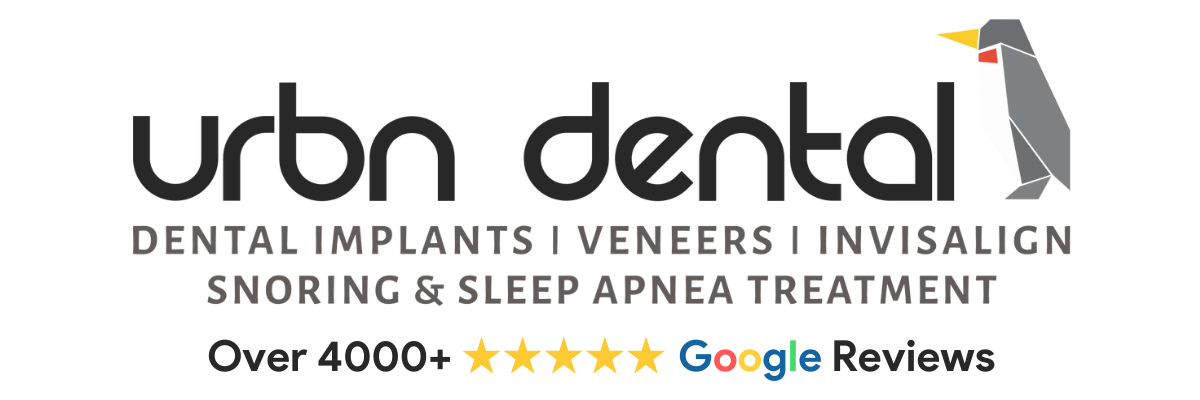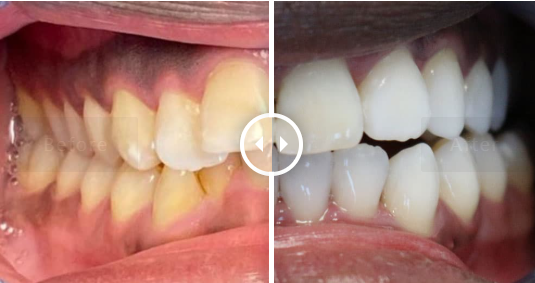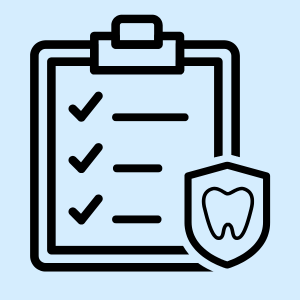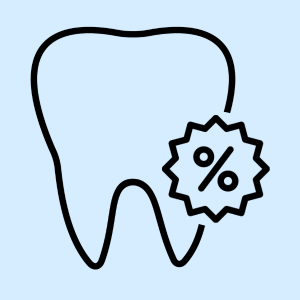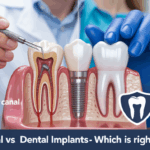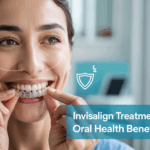Acute Apical Abscess Treatment
Are you feeling severe pain from an acute apical abscess? Untreated dental pain can greatly affect your lifestyle – aside from the fact that it will affect the way you eat and talk, it can also affect your ability to stay focused at your place of work. That’s why you need to visit a professional emergency dentist near me for acute pulpitis pain relief.
Most people believe that acute dental pain is only caused by a toothache; however, a toothache is not the only cause of dental pain. A variety of problems can cause dental pain. So, when you experience dental pain, you should visit a competent dentist to ascertain the root cause of your dental pain.
Causes of Tooth Pain
Some causes of tooth pain are listed below:
Acute Apical Abscess
Acute apical abscess is the inflammation of the soft tissues of the mouth located very close to the tips of the tooth roots. Acute apical abscess can be caused by dental cavity, damage to the pulp tissue, injury, or trauma. The pain from acute apical abscess aggravates when the affected tooth is touched or used to chew food. Symptoms of acute apical abscess include swelling of the gum and jaw that may radiate to the face or neck, loss of appetite (especially in kids), lethargy, and fever. If you experience any of the symptoms above, visit a toothache dentist near me in Houston as soon as possible.
Dental Pulpitis
This is the well-known toothache. It is characterized by a throbbing pain caused either by dental decay or a faulty dental restoration. This pain aggravates with eating or drinking, and it may get so severe if pressure is applied to the tip of the affected tooth. Untreated dental pulpitis may develop into an acute apical abscess. For relief, you might consider searching for a root canal dentist near me for professional treatment.
Gum Disease – Gingivitis and Periodontitis
Gum disease, also known as periodontal disease, is an inflammatory disease of the soft tissues. It destroys the gums, jawbones, and other supporting tissues and structures of the teeth. Gum disease can either occur as gingivitis (gum inflammation) or periodontitis. Gingivitis is the earliest form of gum disease and is characterized by bleeding gums.
Gingivitis is painless and can either get worse or go away on its own. Periodontitis is the worst case of gum disease and is accompanied initially by low pain. However, if periodontitis remains untreated, the disease will affect the gingival tissue and jawbone. Eventually, it will lead to tooth loss. Visiting a local dentist near me for regular dental cleaning or teeth cleaning near me can help prevent gum disease.
Dry Socket (Alveolar Osteitis)
This is the inflammation of a socket left after a tooth, especially the molar tooth, has been extracted. It usually occurs one or two days after the tooth extraction process. It occurs when no blood clot is formed on the tooth extraction site or when the blood clot gets dislodged or pulled out. Symptoms of dry socket include swelling or a bad odor from the extraction site. If you are experiencing this, contact an emergency oral surgeon near me or a broken tooth repair dentist immediately.
Pericoronitis
Pericoronitis usually occurs when the lower wisdom teeth are erupting and are impacted because there is not enough space to allow their growth. It can also be caused by a bacterial infection that affects the gum when the lower molars are developing. Pericoronitis causes swelling of the gums and severe pain around the affected tooth. Symptoms of pericoronitis include the inability to open the mouth well, fever, fatigue, nausea, bad odor, difficulty swallowing, etc. For wisdom tooth issues, it’s important to find a dentist for wisdom teeth extraction near me.
If you experience any of the dental issues listed above, consult a toothache Houston dentist as soon as possible for tooth infection treatment in Houston. Other causes of acute dental pain and discomfort include high bite, exposed dentine, root canal therapy (endodontic surgery), maxillary sinusitis, and oral ulcers.
Diagnosing an Acute Dental Pain
If you experience any pain in your mouth or jaw that persists after you have taken painkillers, you need to consult a dentist in Houston near me to diagnose the exact dental problem. Your dentist would check whether you experience any symptoms of myocardial infarction. Your dentist would also ask if you have taken an overdose of painkillers. If the symptoms are related to myocardial infarction or overdose, your dentist would send you to the emergency room. Otherwise, your dentist would further diagnose if your toothache is a result of trauma and treat it accordingly.
If not, your dentist will check if the pain is a result of an underlying tooth. If the pain is due to an emanating tooth, your dentist would administer analgesia. However, if the pain is not from an emanating tooth and analgesia did not help to eliminate the pain, your dentist may recommend non-urgent acute dental care.
Eliminating/Healing Your Acute Dental Pain
The first step in eliminating or healing acute dental pain is to diagnose the cause of the pain. Once the cause of the pain is identified, your Houston dentist will determine the appropriate treatment for the pain. Your emergency dentist will begin the tooth extraction process and provide you with painkillers to help alleviate the associated pain.
The most preferred types of drugs for acute dental pain are NSAIDs (non-steroidal anti-inflammatory drugs). These drugs are always the first set of drugs that would be prescribed to you when you have acute dental pain. These drugs reduce pain, discomfort, and inflammation.
Other drugs that are also good at treating acute dental pain are opioids. However, these drugs only control pain and do not reduce inflammation in the mouth. That means if you have inflammation, opioids are not the right option for you. More so, you must be careful with the use of opioids because they can pose risks such as addiction and overdose.
Aside from administering pain control drugs, your dentist may also recommend other dental treatment procedures, such as dental fillings, dental crowns, tooth extractions, and root canals. The best treatment for your acute dental pain will depend on the cause of your dental pain and discomfort. Are you experiencing any form of dental pain?
Contact URBN Dental, your best dental clinic near me, today for high-quality dental care.
Preventive Care and Follow-Up After Acute Apical Abscess Treatment
After successful treatment of an acute apical abscess or other dental infections, maintaining oral health is key to preventing recurrence. Scheduling routine dental cleaning near me or teeth cleaning near me ensures the removal of plaque and bacteria that can lead to future problems. These preventive visits help your family dentist monitor your oral health and catch issues early.
Follow-Up Treatments: Veneers and Dental Implants Near Me
In some cases, after infection resolution, restorative treatments such as veneers near me or dental implants near me may be recommended to repair damaged teeth or replace teeth lost to infection. Your dentist may suggest porcelain veneers for cosmetic enhancement or recommend top-rated dental implants to restore function and aesthetics.
Managing Dental Emergencies with Sedation Dentist Near Me
If you experience anxiety about dental procedures following an abscess or other emergency, consulting a sedation dentist near me can make treatments more comfortable. Sedation dentistry is especially helpful for complex treatments like root canals or dental implants, allowing you to relax while receiving expert care.
Why Choose URBN Dental for Acute Apical Abscess Treatment?
If you’re suffering from an acute apical abscess in Houston, URBN Dental offers immediate, expert care designed to relieve pain fast and treat the root cause of the infection. With multiple state-of-the-art locations across Houston, URBN Dental is equipped with the latest dental technology and a highly experienced team of emergency dentists ready to handle urgent dental issues like abscesses, pulpitis, dry socket, and more.
At URBN Dental, patient comfort and safety are a top priority. Whether you need a same-day root canal, tooth extraction, or pain-relieving antibiotics, their emergency dental services are comprehensive and efficient. They also offer sedation options to ease anxiety during treatment and provide follow-up care like dental implants or crowns when needed.
Looking for a walk-in dentist near me or urgent dental care in Houston? URBN Dental is your go-to destination for immediate relief and high-quality treatment.
FAQs
1. What is an acute apical abscess, and how is it treated?
An acute apical abscess is a painful infection at the tip of a tooth root caused by untreated dental decay or trauma. It causes swelling, severe pain, and sometimes fever. Treatment typically involves visiting an emergency dentist near you for drainage of the abscess, antibiotics, and possibly a root canal or tooth extraction to eliminate the infection.
2. When should I see an emergency dentist for dental pain?
Seek an emergency dentist near you immediately if you experience severe tooth pain, swelling, fever, or difficulty opening your mouth. These symptoms may indicate an infection, such as an acute apical abscess or pericoronitis, which requires prompt professional care to prevent complications.
3. Can a family dentist handle an acute dental emergency?
Yes, many family dentists near me are trained to manage dental emergencies, including acute abscesses, pulpitis, and gum infections. They can provide pain relief, prescribe antibiotics, and refer you to a specialist, such as an emergency oral surgeon, if advanced treatment is needed.
4. How can I prevent gum disease and dental infections?
Regular visits for dental cleaning near me or teeth cleaning near me are crucial for preventing gum disease, such as gingivitis and periodontitis, which can lead to infections like abscesses. Maintaining good oral hygiene, including brushing, flossing, and routine check-ups with your local dentist, also helps reduce the risk.
5. What medications are used for acute dental pain relief?
The first line of treatment for acute dental pain usually includes NSAIDs (non-steroidal anti-inflammatory drugs) to reduce pain and inflammation. In some cases, opioids may be prescribed, but they do not reduce inflammation and carry risks like addiction. Always consult your dentist for proper pain management.
6. How is dry socket treated after tooth extraction?
Dry socket occurs when the blood clot at the extraction site is lost, causing intense pain and a bad odor. Treatment by an emergency oral surgeon near me involves cleaning the socket, applying medicated dressings, and prescribing pain relief to promote healing and reduce discomfort.
